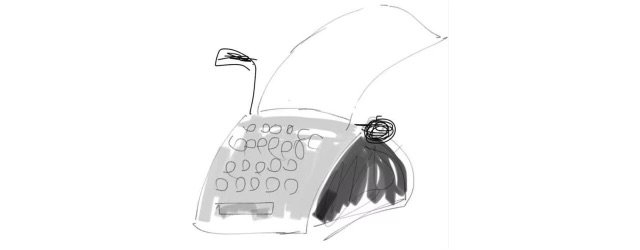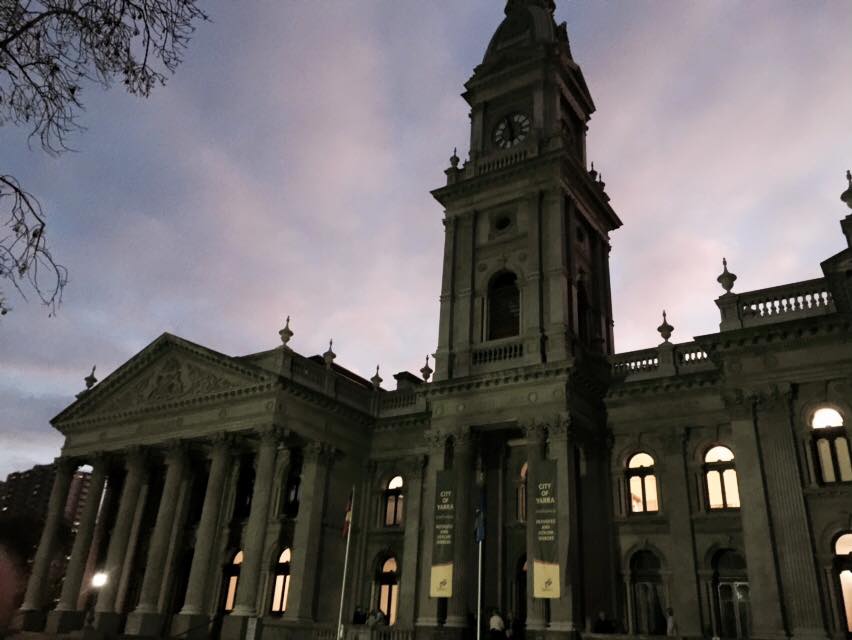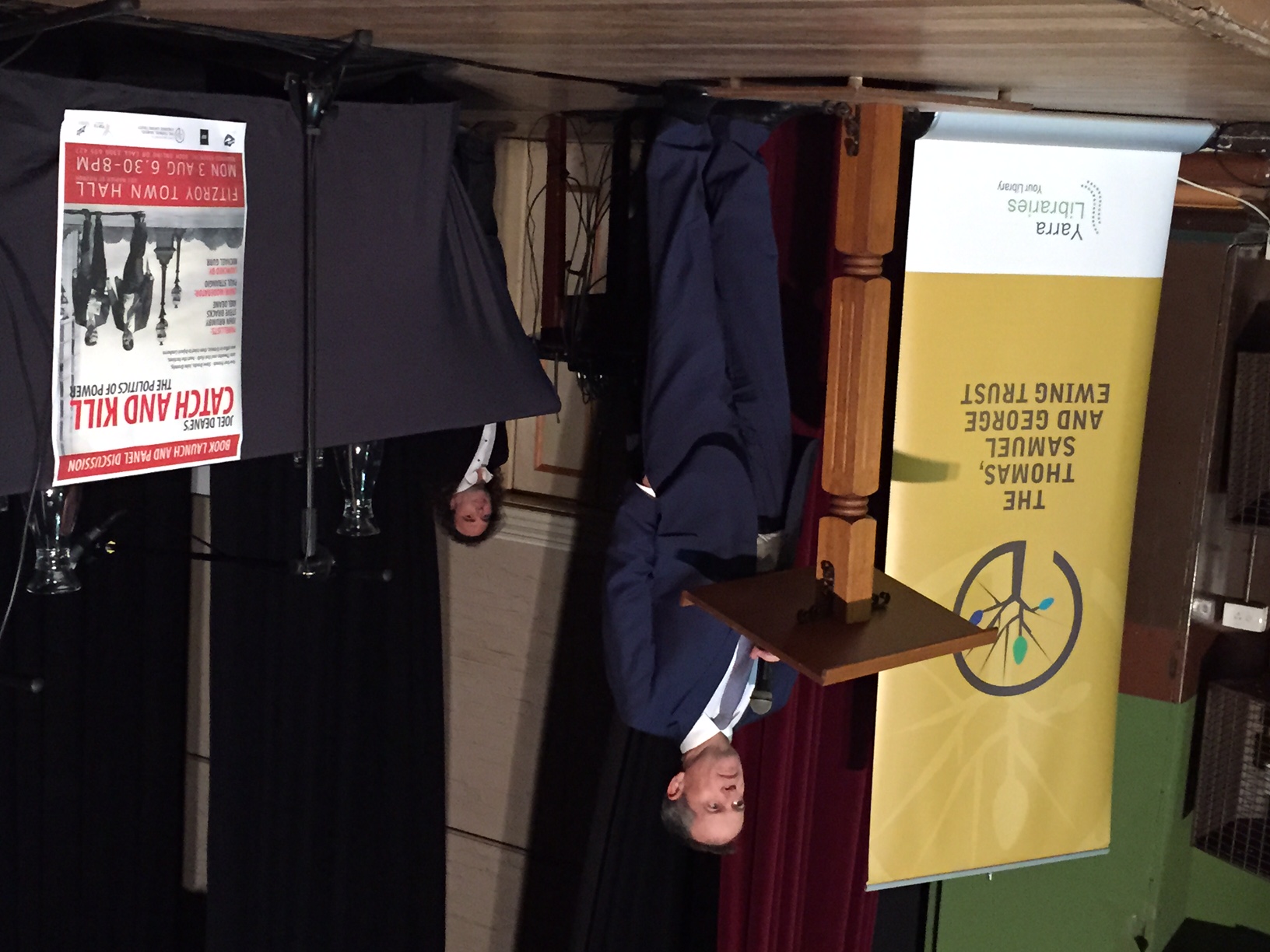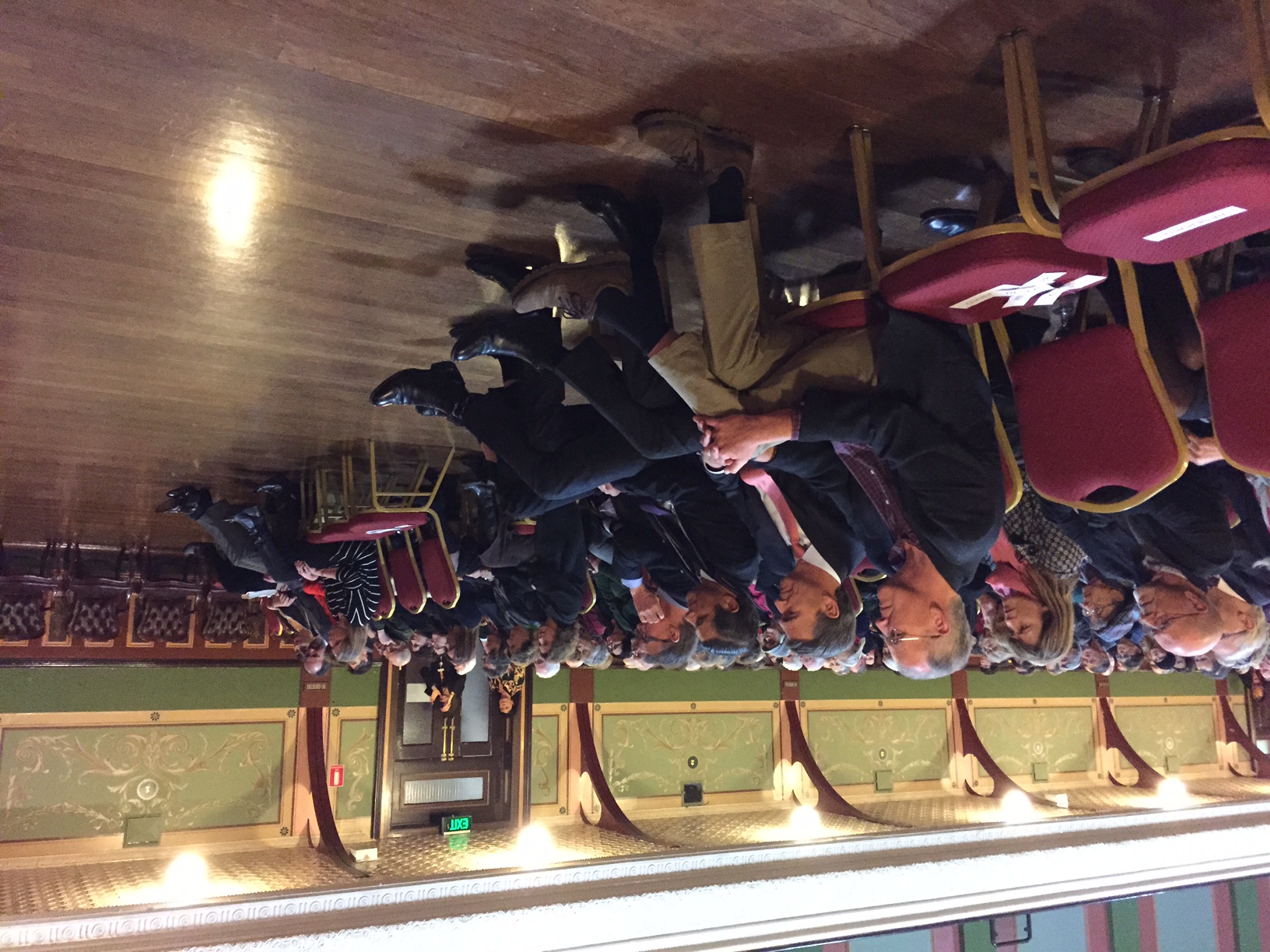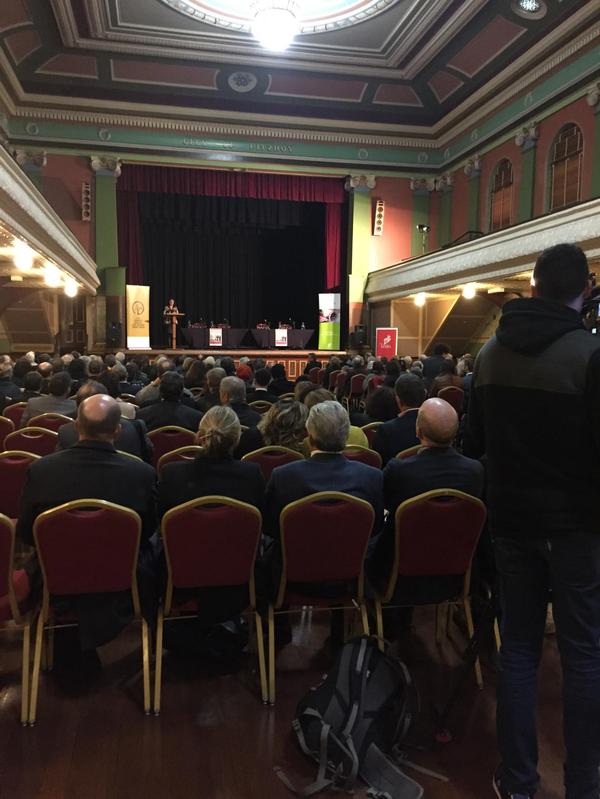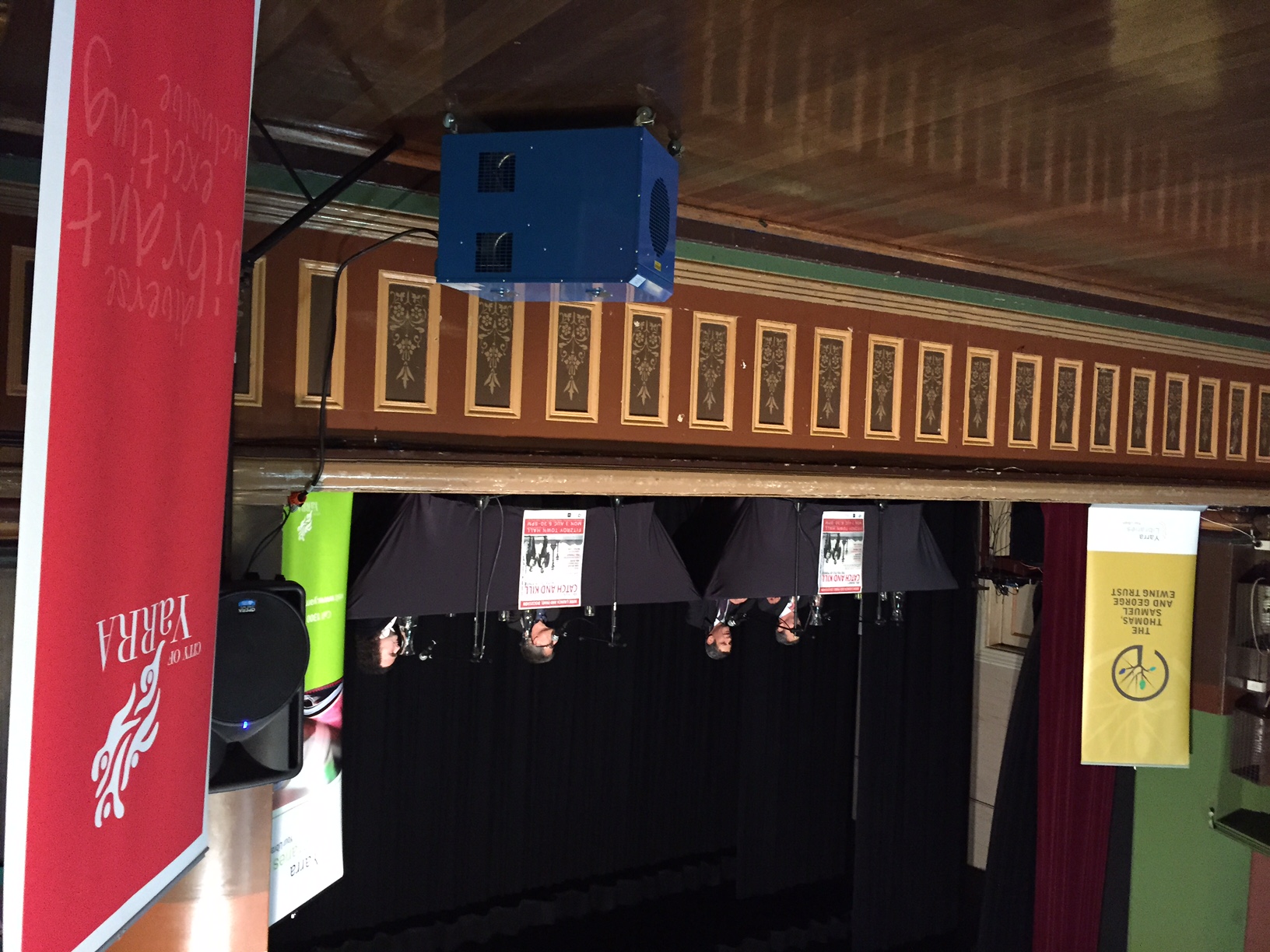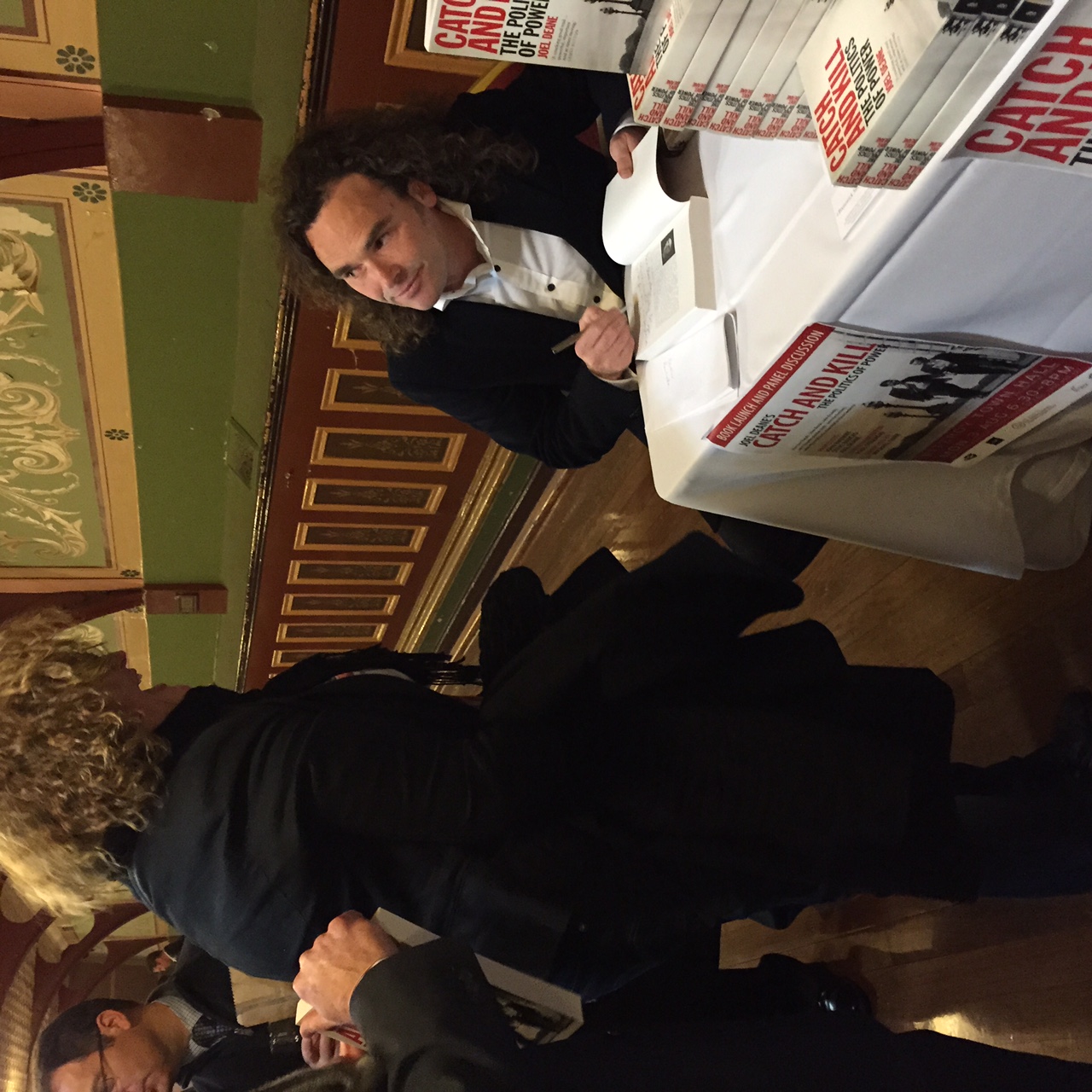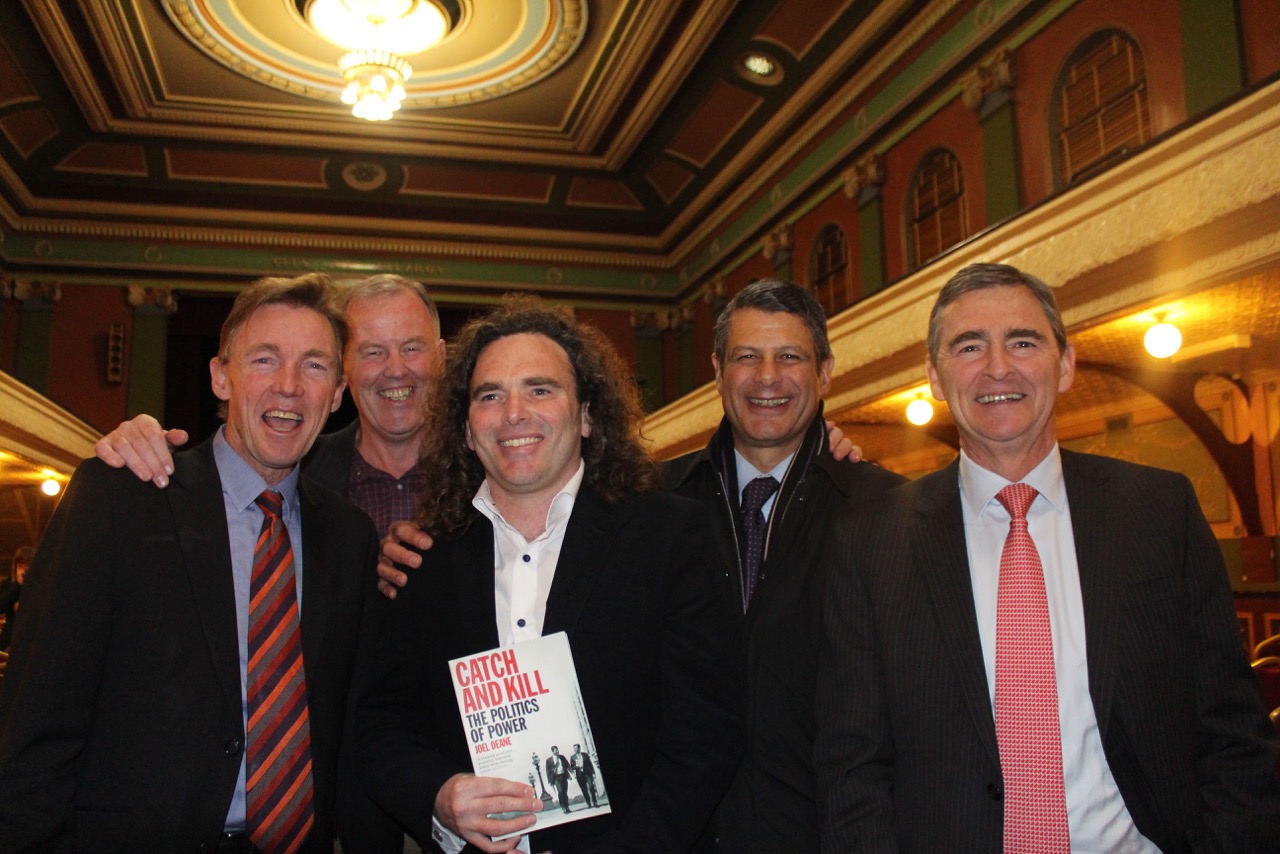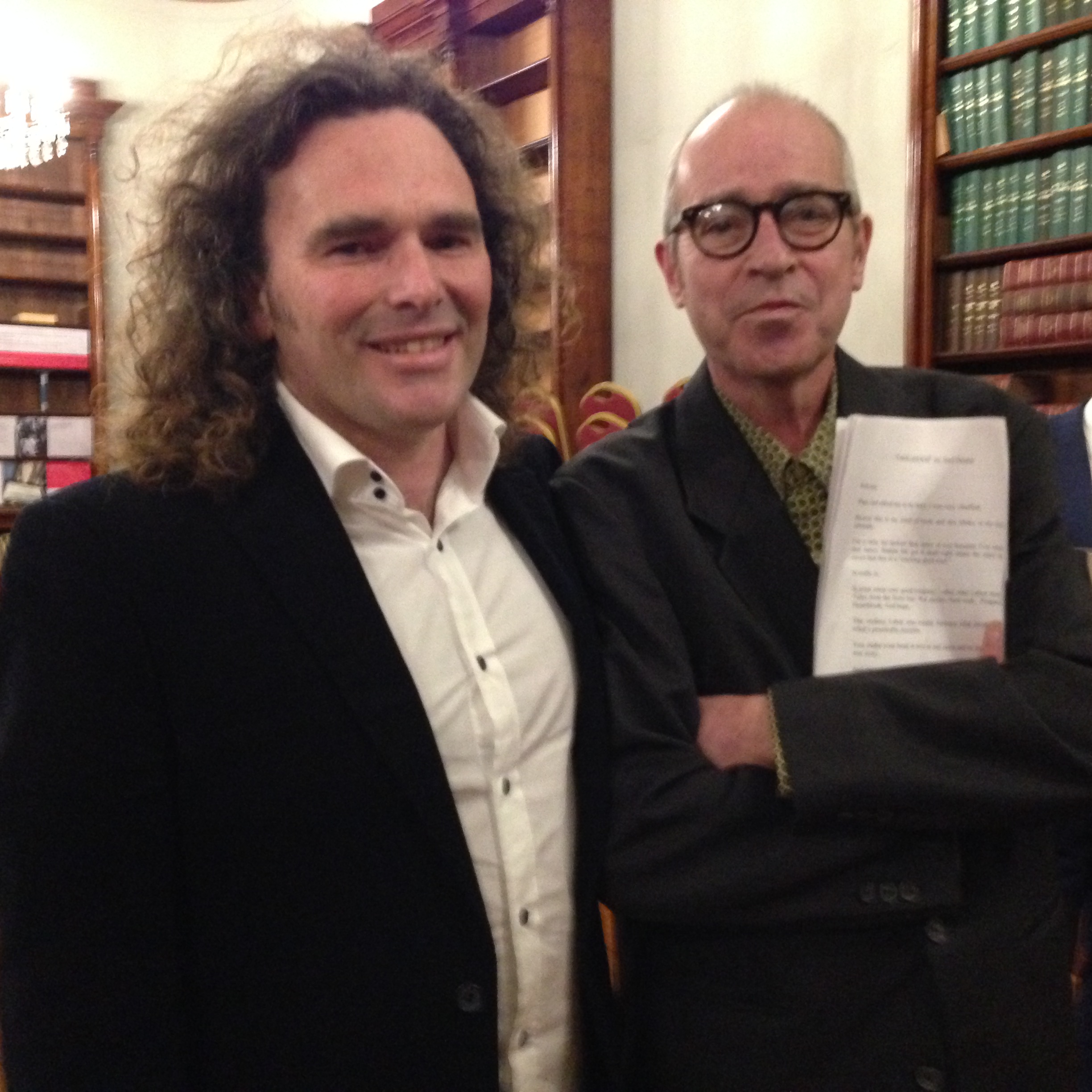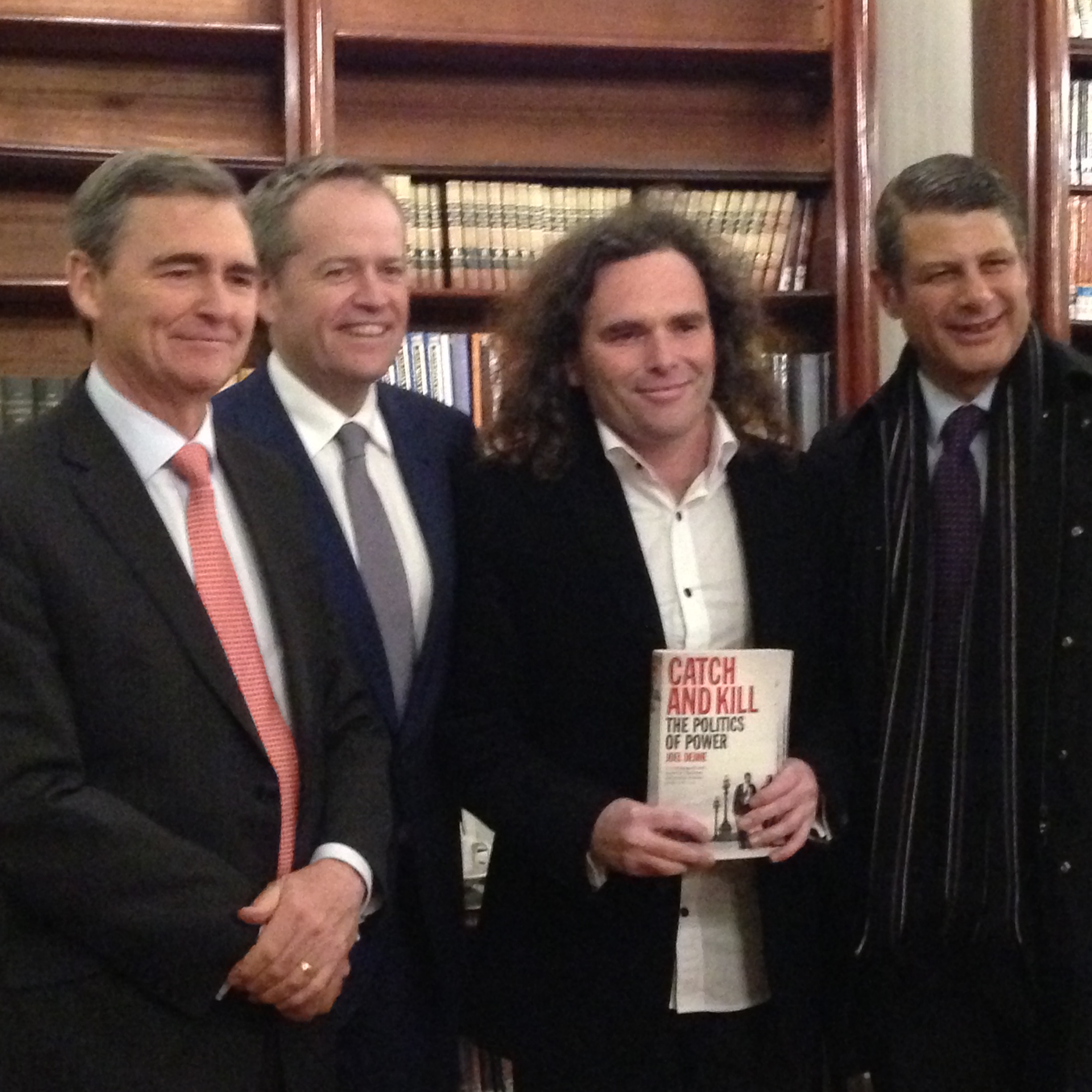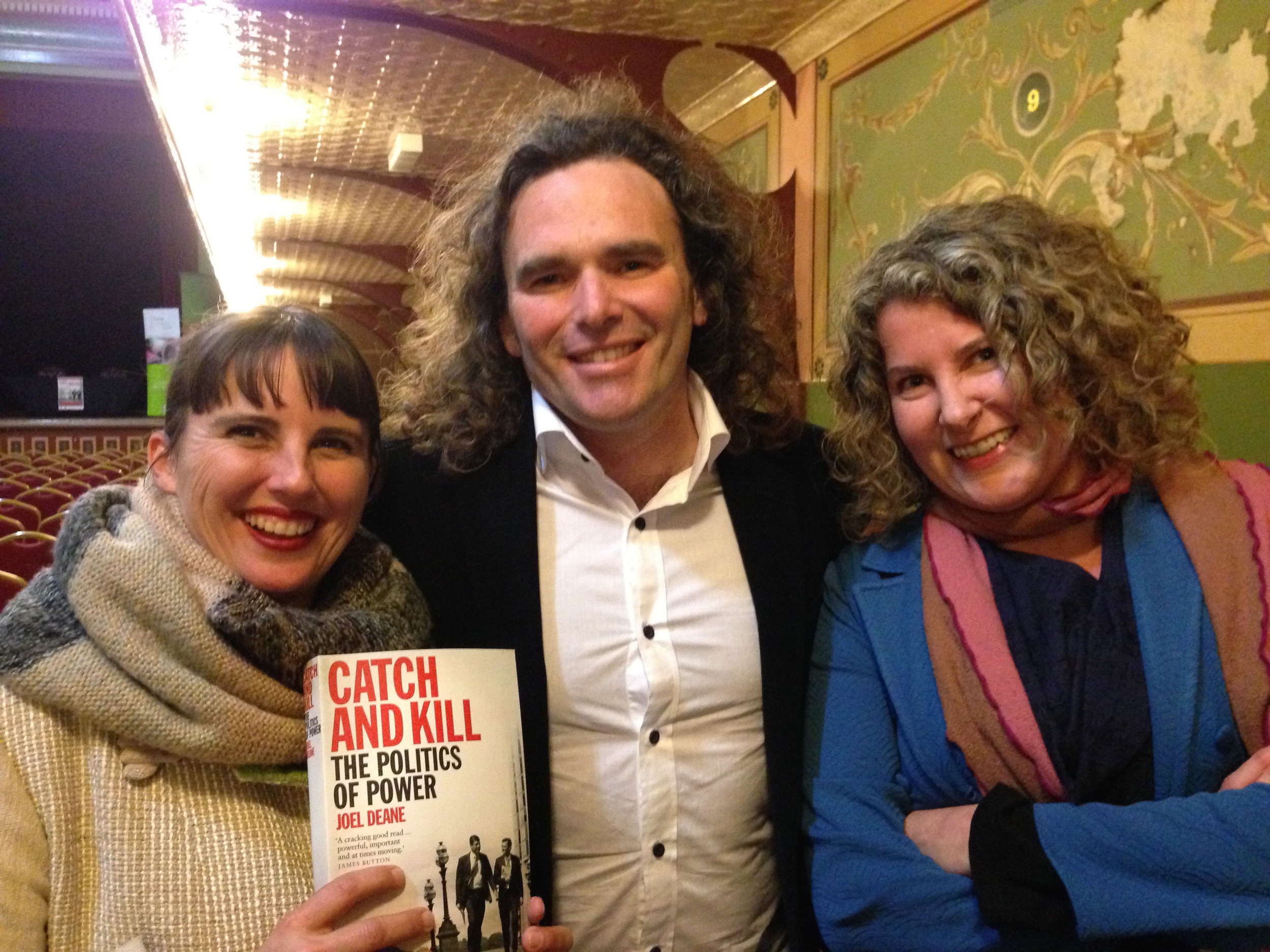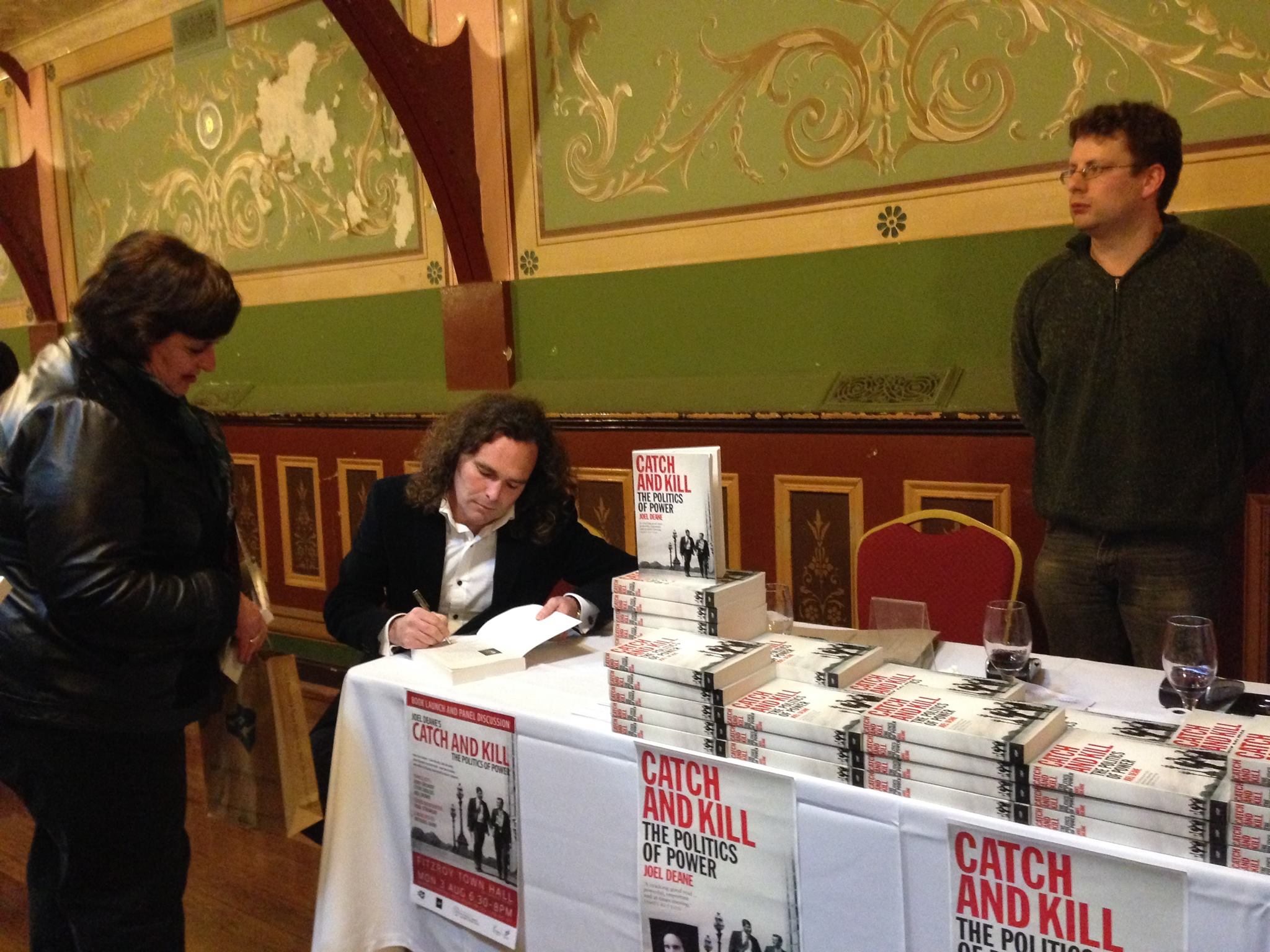Mt Wellington, Tasmania. July 2017.
On police shootings
According to news reports, US police have shot dead 541 citizens so far this year.
I was wondering what that would equate to, proportionally, in a country the size of, say, Australia.
The answer?
40 fatal police shootings.
I'm not sure how many people have been shot dead by Australian police this year, but I doubt it's in double figures.
I suspect that if the number was even 20 there would be Royal Commissions in every jurisdiction in the country. That means many African-American communities, which are disproportionately the target of police shootings, would be within their rights to feel as though they are living in a police state.
Of course, policing is a dangerous job and human error is inevitable, but police shootings of this magnitude are indefensible.
Also, reform is possible. Following a spate of police shootings in Victoria in the 1990s, changes to police led to a significant reduction in shootings.
Basically, if you equip police with surplus military gear and drill them with military training don't be surprised if they start behaving as though they are soldiers in a war zone.
That's one of the reasons why Australia needs to be wary of Federal moves to meld policing, border security, defence and spy agencies in the name of 'homeland security'.
Community safety must, primarily, be about the defence of civil liberties -- including the right to be safe from the overzealous powers of the state.
Steve Bracks' eulogy for Michael Gurr
Below is the speech the former Premier of Victoria, Steve Bracks, gave at the public memorial for playwright and speechwriter Michael Gurr.
Michael died on May 2, 2017. His memorial was held on May 15 at the Malthouse Theatre.
Michael once wrote,
‘Political speechwriters dream the Gettysburg Address but wake up to the Cheltenham Chamber of Commerce.’
I suspect he was referring to state politics.
What that quote doesn’t tell you is how often Michael made those of us who had to speak to the Cheltenham Chamber of Commerce feel a little like Abraham Lincoln.
My point: politics mattered to Michael.
It mattered deeply.
It wasn’t a game.
It wasn’t beneath him.
It was worth the fight.
Politics was – and is – the stuff of life.
Yes, it’s messy.
Yes, it involves compromise.
But public life is a calling worthy of the efforts of our best and brightest – people like Michael.
That’s what Michael believed.
That’s why he dedicated his considerable talents to the collective effort for progress.
And I am here to tell you that Michael’s contribution to the fight for progress counted.
He made a difference.
I first met Michael in 1999.
I had just become Leader of the State Opposition.
Labor was – according to the experts – unelectable.
Michael didn’t agree.
Michael had volunteered his speechwriting services to my predecessor, John Brumby, in 1996.
He didn’t want anything in return for his efforts. He just wanted to get rid of Jeff Kennett.
Over the next three years, Michael was one of the true believers who – bit by bit – pulled Labor back from the abyss.
He was one of the reasons why we won in 1999.
Much has been written and said about the 1999 election.
Especially the one-word speech Michael wrote that was to be delivered if – against all the odds – we won.
That one word was ‘F.U.C.K.'
What hasn’t been widely acknowledged is how important Michael was to me at the time – not just as a speechwriter, but as a voice of reason and a friend who helped us find the words that led us to the light on the hill.
As I said, Michael made a difference.
That’s why, after we won, I asked Michael to come in from the cold – to work as my speechwriter in government.
He declined the offer.
I understood why Michael said no.
He wasn’t in politics for personal gain.
He just wanted to put his shoulder to the wheel.
He just wanted us to get to the top of that hill.
That was why – whenever the contest was fiercest – whenever the outcome was in question – I found Michael was standing beside me.
He worked for us in the 2002 election and the 2006 election:
Advising me,
Making me laugh,
Helping us find the words that led to the light on the hill.
All of which is why it’s hard to believe he’s gone.
I last saw Michael at St Vincent’s.
It was the day the Paul Keating was visiting Melbourne – and Keating had given a sparkling interview to Jon Faine on 774.
Michael and I spoke about Keating.
And we spoke about 1999.
And – at one point – Michael thanked me for letting him work on those elections.
And I had to respectfully disagree with my old friend.
He didn’t have to thank me – but I had to thank him for helping us find that light on the hill.
Thank you, Michael.
You were the light.
Joel Deane and Michael Gurr, 2015.
Obituary: Michael Gurr, 1961-2017
The text message arrived after midnight.
Tim Pallas, Victoria’s Treasurer, was hours away from delivering the State Budget, but wanted an update on the health of playwright, speechwriter, theatre director, radio broadcaster, poet and author Michael Gurr. “A great speechwriter and a true Labor hero among so many other literary achievements,” Pallas wrote. “But his greatest achievement was being there for us in the dark times of Opposition when few wanted to know us. I will miss him profoundly.”
Two hours later, at 2.20 a.m. on May 2, Gurr died at St Vincent’s Public Hospital, Fitzroy. He was 55.
Pallas’ praise for Gurr was not hagiolatry. Between 1996 and 1999 – a time when Premier Jeff Kennett was considered unbeatable and the Victorian branch of the Australian Labor Party untouchable – Gurr was part of a small band of politicians, staffers and true believers who built an electoral siege machine capable of felling Kennett’s dominant Coalition Government.
At first, Gurr wrote speeches for Labor leader John Brumby. When Brumby was replaced months before the 1999 state election, Gurr switched to the new leader, Steve Bracks. The leader and speechwriter clicked, and Labor won. “Michael was one of the reasons why we won in 1999,” Bracks said at the public memorial for Gurr.
Gurr went on to play defining roles in Victorian Labor’s successful 2002 and 2006 campaigns, but declined offers to work for Bracks in government. Instead, he returned to his first love – theatre.
Precociously talented, Gurr was spotted by playwright Ray Lawler, author of Summer of the Seventeenth Doll, while studying at the National Theatre Drama School. In 1982, at the age of 20 he became the youngest ever writer-in-residence at the Melbourne Theatre Company. “When Michael came to Melbourne Theatre Company he was already beyond any need of me as a literary mentor or advisor,” Lawler said.
Despite his early association with the MTC, Gurr’s plays were synonymous with the Malthouse Theatre, then known as Playbox, where he produced seven plays in just twelve years. At the Malthouse, Gurr often worked with director Bruce Myles to produce a string of critically acclaimed plays such as Crazy Brave, Sex Diary of an Infidel, Jerusalem, The Simple Truth and Underwear, Perfume and Crash Helmet.
Gurr’s plays toured nationally, were produced in the United States, South Africa and Britain and won numerous awards – including eight Green Room Awards and four State Literary Awards for Drama in Victoria and New South Wales.
In 2003, he wrote Something to Declare, a spoken narration of the collected stories of asylum seekers that has since been performed more than 100 times around Australia. In 2007, his political and artistic memoir, Days Like These, was shortlisted for the New South Wales Premier’s Literary Award. His last play, Mercy, premiered in 2010, while a radio adaptation of the Patrick White novel Memoirs of Many in One aired on ABC radio in 2012.
A long-time resident of Footscray, Gurr spent his final years living in Castlemaine, in regional Victoria. He became critically ill in April and was flown to Melbourne, where scores of Gurr acolytes gathered to say farewell. In his final days, 13 people slept on the floor and in the corridor outside his hospital room.
The public memorial for Gurr was held at the Malthouse Theatre, the scene of many of his artistic triumphs, on May 15 – the 20th anniversary of the opening night of the Sydney production of Jerusalem. The theatre was packed with more than 350 people. Speeches were said, songs were sung, poems were read, and scenes from Gurr plays were brought back to life on the stage. Finally, the author was given a long, lingering standing ovation.
Michael Gurr is survived by his siblings Mary-Anne, Susan, Belinda and Christopher, and his partner Brandon Jones.
Bill Shorten's speech at the launch of Catch and Kill
Speech delivered on August 3, 2015 at the Fitzroy Town Hall.
It’s an honour to say a few words tonight at the launch of Catch and Kill. I’m conscious we have a panel of distinguished speakers and an author to interview, so I will keep my contribution brief.
This is a book about Labor in power, and it is also a book about power in Labor.
There will undoubtedly be reviewers and commentators who focus on the latter. Who write breathlessly of ‘shocking’ revelations. The factions and rivalries, the personal ambitions and broken pledges.
The backroom conflicts and last-minute compromises.
But this book should not be read through the prism of palace intrigue. This book, its author and the protagonists are worthy of better.
Catch and Kill is much more than a ‘who promised what to whom’ account of internal machinations. It is the story of a group of genuine, talented Labor people who came together to win government, and worked together to govern well and to make Victoria a better place.
It’s a reminder Opposition can sometimes be a slog – and I can tell you, that’s a bit of an enduring truth.
But it’s proof of the rewards that come from doing the hard yards.
Learning the lessons of defeat, re-engaging with members and the community. Working out the problems people faced in their daily lives and crafting the solutions.
And it is, especially, a story of the great things the Bracks and Brumby Governments achieved for Victoria.
Fiscally conservative, socially progressive.
Governments that knew, as all of us in modern Labor do, that economic growth is always stronger when it is shared.
That prosperity always lasts longer when more people are a part of it.
And that the true measure of successful economic management is to ensure that the dividends are re-invested in what matters:
Great schools
Quality healthcare
A sustainable environment
Stronger regions
And social justice
This is the proud story of the 11 years of Steve Bracks, John Brumby, Rob Hulls, John Thwaites and all their team.
Of people who believed Victoria could be a national leader, driving national issues and shaping the Commonwealth.
It’s also a deeply personal book.
Personal in its substance and its style.
The writing is vintage Deane.
There are the historical titbits, the footy references, the flavour of country childhood, Fitzroy youth and Catholic upbringing.
But above all, there is the wordsmithing I remember from every one of Joel’s drafts. Joel’s prose has always had a kind of Spartan clarity. A relentless, military pursuit of the logic and argument.
Every sentence a trim, disciplined, self-sustaining unit. Each one formidable on its own.
And when the paragraphs lock their shields with each other and advance in formation – it’s unstoppable.
No syllable is ever wasted, no excess adjectives are allowed to clutter the field. For example he would have cut that whole Spartan analogy.
This means the character sketches are spot on. Neither coloured by hagiography nor tainted by bile.
And it injects refreshing candour into the chapter titles ‘Jesus Freaking Bananas’ would have to be my personal favourite.
The expletives alone mark Catch and Kill as the book of a political staffer. There’s a great line in here where Joel describes political advisors as: 'a tribe specialising in snap judgments and Olympian disdain.'
And it’s fair to say there are shelves full of books written by ‘insiders’ which build from the premise that it was only their presence behind the curtain that kept the show on the road.
Joel’s book isn’t like that.
We get glimpses of the speechwriter’s life: the long hours, shuttling drafts back and forth, making peace between the news imperative and policy purity.
But this isn’t a story of one man carrying the Labor party on his shoulders.
Joel doesn’t present himself as the unmoved mover or the spider in the centre of the web.
He doesn’t pretend he had a voice in every decision or an eye to every keyhole. Joel doesn’t make it all about him.
And this tells you everything you need to know about him. Joel Deane the staffer and Joel Deane the man.
Joel was a volunteer, not a conscript. He came to politics to add his contribution, not further his ambitions.
This is the book of a man who counted himself lucky to serve Labor – not someone who considered Labor lucky to have him.
And Joel, this is precisely why we were lucky to have you.
Congratulations on Catch and Kill – I wish you and your work all the very best in the future.
